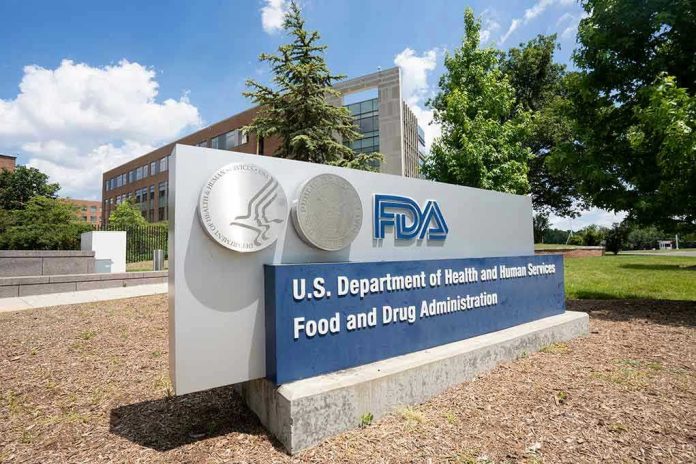
Over 140,000 bottles of a widely-used cholesterol drug have been recalled, stirring concern over its efficacy in combating cardiovascular disease.
Story Overview
- The FDA announced a recall of Atorvastatin Calcium Tablets due to dissolution failures.
- Over 140,000 bottles from multiple lots are affected, impacting medication efficacy.
- Recall classified as Class II, suggesting remote risk of serious health issues.
- No adverse health effects reported yet, but patient guidance remains unclear.
Failed Dissolution Sparks Concern
Over 140,000 bottles of Atorvastatin Calcium Tablets, the generic form of Lipitor, have been recalled after failing dissolution tests. This issue means the drug may not dissolve properly, potentially compromising its ability to effectively lower cholesterol levels. The recall, announced in September 2025 and classified as Class II by the FDA, involves bottles distributed nationwide. This classification indicates that while adverse health consequences are unlikely, the medication’s effectiveness is in question.
Manufactured by Alkem Laboratories in India and distributed by Ascend Laboratories LLC in New Jersey, the affected medication is available in 10 mg and 80 mg doses. The recall affects multiple lot numbers, with expiration dates ranging from July 2026 to February 2027. The FDA’s enforcement report highlights the importance of ensuring drug bioavailability, a critical factor in medication efficacy.
Impact on Patients and Healthcare
The recall raises significant concerns for patients relying on Atorvastatin to manage cholesterol and prevent cardiovascular events. While no illnesses have been reported, the potential for reduced drug efficacy means patients may not receive the full therapeutic benefit. This could theoretically increase the risk of heart attacks and strokes if cholesterol levels are not adequately controlled.
Healthcare providers and pharmacists face the challenge of identifying affected patients, informing them of the recall, and managing the transition to alternative medications. This situation places additional strain on an already burdened healthcare system, requiring resources for patient notification and prescription adjustments.
Industry-Wide Implications
The recall sheds light on quality control issues within the pharmaceutical industry, particularly concerning generic medications manufactured internationally. Failed dissolution specifications highlight the need for stringent quality checks to ensure drug efficacy. This incident may prompt regulatory bodies to scrutinize dissolution testing protocols more closely, potentially leading to stricter manufacturing standards.
For Alkem Laboratories and Ascend Laboratories, the recall represents a significant financial and reputational setback. The cost of retrieving and disposing of the recalled products, along with potential legal liabilities, poses economic challenges. Additionally, the recall may affect patient confidence in generic drugs, influencing future prescribing patterns and consumer preferences.
Consumer Guidance and Next Steps
As of late October 2025, specific guidance for consumers remains sparse. The FDA suggests that patients check lot numbers against the recall list and consult their healthcare providers for advice. Abruptly discontinuing medication without medical guidance can have health consequences, emphasizing the need for professional consultation.
Consumers may learn about the recall through various channels, including media coverage, pharmacy alerts, and communications from healthcare providers. Efforts to inform affected individuals are ongoing, but the lack of clear instructions from the manufacturer or distributor underscores the complexity of managing large-scale recalls effectively.







